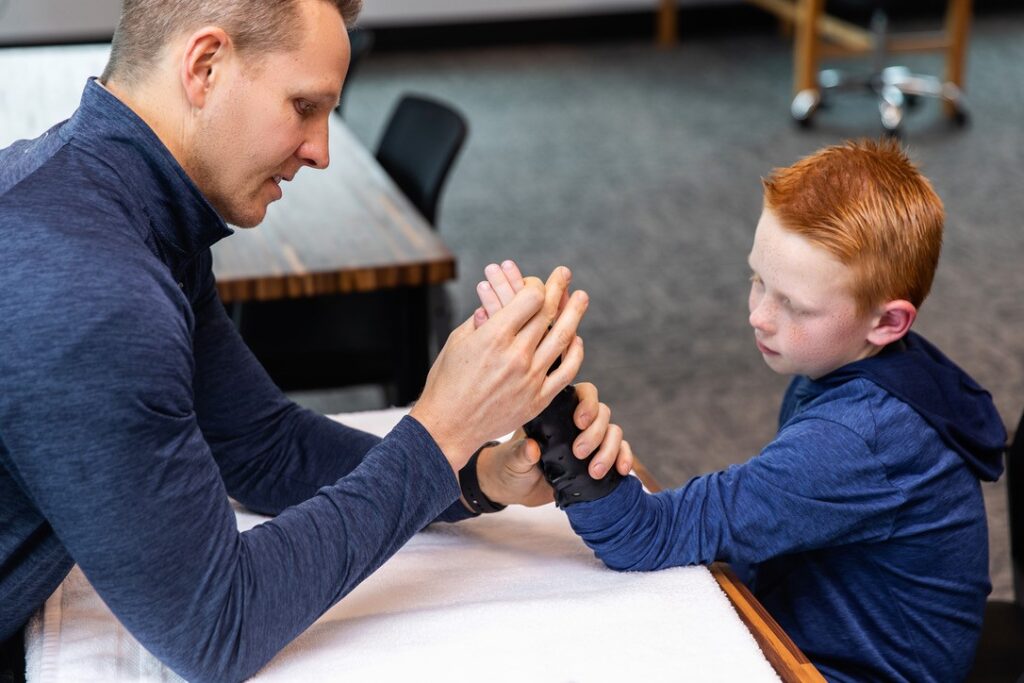Custom Thermoplastic Splinting
Splints keep body parts from moving and help protect them from further injury. Thermoplastic splints are splints made from moldable plastic material composites that are activated with low heat and placed directly on the affected body part. They harden as they cool. Thermoplastics are used to create many orthopedic and rheumatology specialty splints/orthoses to allow for a more custom fit. High-stretch thermoplastics are easy to stretch and drape, making them a great option for splints that go around small body parts like fingers, thumbs and wrists. The stiff low-stretch version is best suited for larger splints used on larger body parts, such as an entire forearm because it offers more support and strength. There are four factors in determining the best splinting material to use for different parts of the body:
- Perforation Level: The more perforations (holes) there are, the lighter and more comfortable the splint is. Higher perforation levels are good for smaller body parts. Lower perforation levels provide more stability for injuries or conditions in larger body parts needing more support.
- Thickness: Thermoplastic material thickness ranges from 1.6mm to 4.0mm. The thicker the material, the few perforations there are because the thickness and perforation levels correlate with one another.
- Cut: Thermoplastic splints come in sheets, strips or precut options. Sheets are better for larger body parts than an entire forearm. They offer the most flexibility in creating more custom fits. Strips are best for small body parts. The smaller cuts result in less waste. Precut options are semi-molded for a variety of anatomical shapes. This option does not offer as much flexibility for customization but creates less waste.
- Coating: There are two coating options – non-coated sticky material and coated non-stick material. The non-coated sticky material sticks to the splint and additional materials such as wire or velcro. The coated non-stick material prevent the splint from sticking to itself and other materials.

Bountiful
1551 S. Renaissance Towne Dr.
Suite 440, Bountiful, UT 84010
Phone: (801) 683-8040
Fax: (801) 797-9243
Clinton
1448 N 2000 W Suite 7
Clinton, UT 84015
Phone: (801) 217-3510
Fax: (385) 393-8578
Brigham City
984 Medical Dr., Suite 3
Brigham City, UT 84302
Phone: (435) 239-8104
Fax: (435) 239-8415
Layton
1992 W. Antelope Dr., Suite 1D
Layton, UT 84041
Phone: (801) 773-2633
Fax: (801) 773-1553
Farr West
2850 N 2000 W suite 107
Farr West, UT 84404
Phone: (801) 689-2389
Fax: (801) 689-3215
